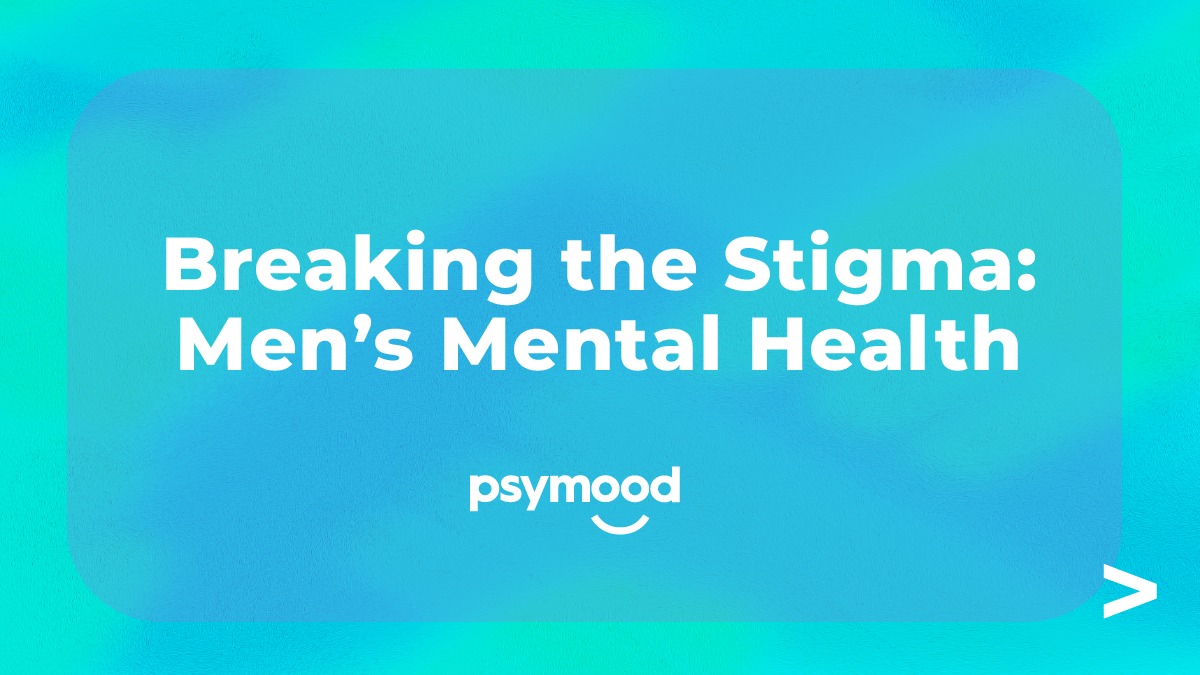Men’s Mental Health – Breaking the Stigma
Let’s talk about men’s mental health. We know that mental health is an issue that plagues men and women alike. However, men tend to be overlooked when talking about mental health. This could be due to a number of reasons ranging from the stigma around men’s mental health, different symptoms between genders, lack of education about mental health, and societal expectations.
Let’s explore what affects men’s mental health, the stigma men may experience, the different symptoms men may experience, how to access the right help and how we can break the stigma around men’s mental health.
Mental Health and Men – Here are the statistics
Men’s mental health is not talked about enough. According to World Health Organization three times as many men as women die by suicide. A similar study done by American Foundation for Suicide Prevention found that men died by suicide 3.56 times more than women in the United States. Moreover, approximately 10% of Canadian men experience some significant mental health changes throughout their life. And almost one million Canadian men experience major depression each year.
Despite these shocking numbers, men are still less likely to receive formal mental health support than women.
Mental Health Symptoms in Men
While both men and women experience mental health conditions, the symptoms between the two genders can differ. The most common example would be how symptoms of depression present differently in men. Women with depression may experience mood swings, hopelessness, crying, and a decrease in appetite. On the flip side, men may exhibit anger, irritability, OCD patterns, risky behaviours, substance use, or restlessness.
You are probably aware that women experience mental and hormonal changes when they start menopause. But did you know men also experience hormonal changes too? This hormonal change is called andropause and can cause a huge impact on a male’s mental health. This change typically happens when men reach their 40s. When andropause occurs, men will experience a sudden loss of testosterone and this causes many changes that will impact mental health. The most common symptoms are mood swings, depression, irritability, and insomnia. For more information on andropause and its effects on mental health, visit Optimale.
Men vs Society and Stigma
Men face a lot of stigmas when it comes to mental health and seeking help. Men are often told to be “macho” and admitting they need help makes them weak and less of a man. But this is simply not true. This mindset is called “toxic masculinity”. Toxic masculinity is an unhealthy traditional characteristic being used to define how men should behave. This often includes telling men to be unemotional and hide their feelings. It is no surprise that toxic masculinity affects men’s mental health. Men are not taught how to deal with vulnerability, the emotions they are feeling, overcome trauma, or get help when they need it.
Society often forgets that men can also be affected by trauma and mental health and we need to work together as a society to make sure that everyone can access help.
Higher-Risk for Men in BIPOC Populations
Boys and men who are part of vulnerable populations and who come from BIPOC communities are even more at risk of developing mental health issues. Many families who raise their children traditionally, tend to use the phrase, “be a man” or “act like a man”. These men are raised with expectations and misconceptions that can drastically impact how they grow up perceiving mental health.
Furthermore, people who identify as males and are part of the LGBTQ2S+ community are also more vulnerable to mental health conditions. Studies show that gay men have a higher rate of depression, anxiety, suicide risk, self-harm, and substance abuse in comparison to their heterosexual counterparts.
Getting Help
So, how do we support men’s mental health? The first step is understanding the differences in symptoms and conditions they experience. We need to be aware that mental health presents itself differently in our male counterparts. We also need to remember that men tend to have different attitudes and reactions to mental health and getting help. We need to be mindful that accessing help may not always be an easy task, and may take longer to get help. The best thing to do is to be present and listen to our male friends going through some tough times. You can guide them in the direction of getting professional help and suggest a private online mental health platform like PsyMood.
Here are 5 resources to help you or men you know who are struggling with their mental health
Heads Up Guys is a depression resource that provides guys with information and practical tips for accessing help. It is an anonymous resource specifically designed for men, and their families, to prevent the continued erosion of men’s mental health and deaths by suicide.
Talk Suicide Canada provides nationwide, 24-hour, bilingual support to anyone who is facing suicide.
Men and Families provides services, research, advocacy, outreach and public education on all aspects of men’s issues.
Movember Conversations is designed to give you the skills to handle tough conversations with the men in your life.
Buddy Up is a men’s suicide prevention campaign: a call to action for men, by men, to drive authentic conversation amongst men and their buddies.
Together we can break the stigma around men’s mental health.
PsyMood is a digital tool designed to help you find the support you need in the language that you are most comfortable with. PsyMood considers cultural background, geographical location, interests, and personal needs, amongst other factors, to pair you with service providers for either online or in-person therapy sessions.
Check out our other blogs here!


.png)
.png)
.png)
Recent Comments